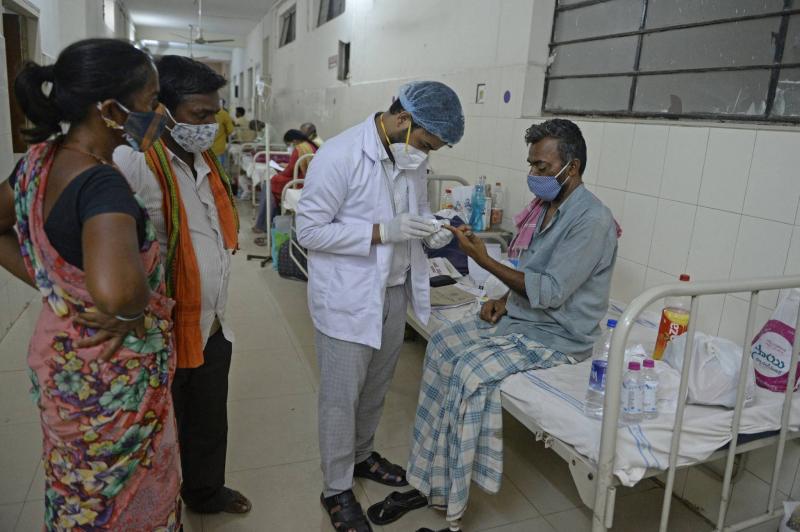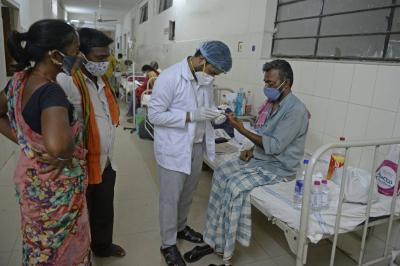The World Health Organization told "Sky News Arabia" that the disease known as black fungus should not be a major concern for the public, as the number of cases is extremely limited and therefore does not pose a significant health challenge. This statement comes amidst rising fears in some countries of the Eastern Mediterranean region, including Egypt, about the spread of black fungus cases, which has sparked debates over the past few days following the announcement of the infection of the artist Samir Ghanem before his death.
Health authorities in Iraq also reported the death of a patient affected by black fungus, marking the second death from this disease. Dr. Amjad Al-Khouli, an epidemiologist with the WHO, stated in remarks to "Sky News Arabia" that black fungus exists in the environment like other fungi and is rarely seen, primarily affecting individuals with severe immune deficiencies. He explained that this disease differs from COVID-19, both in its mode of transmission and epidemiology. However, the extensive use of corticosteroids, including cortisone, to treat mild or moderate cases of COVID-19 is one of the factors contributing to this fungal infection.
Dr. Al-Khouli recommended focusing on implementing preventive interventions against COVID-19, including ensuring vaccinations especially among priority groups. Previously, a report prepared by the Egyptian Ministry of Health, which "Sky News Arabia" exclusively published, revealed that some sporadic cases of black fungus had been observed among COVID-19 patients during the past period, prompting the ministry to adopt a health preventive approach against the disease.
He noted that black fungus, also known as mucormycosis, appears in patients suffering from severe immune deficiency. He said it is a difficult disease to treat and sometimes requires antifungal treatment by intravenous injection, accompanied by surgical removal of the affected body part. Infection occurs when spores are inhaled, subsequently affecting the lungs and sinuses, and potentially extending to the brain or eyes. Symptoms have previously been described in hospitals treating immunocompromised patients with critical immune deficiency.
Those at risk of infection include patients with uncontrolled diabetes, malignant diseases, and those with compromised immune systems. Dr. Al-Khouli emphasized that in severe and critical cases of COVID-19, administering corticosteroids can be a lifesaving solution, but their use should be monitored and given at appropriate doses. The WHO recommends administering relatively low levels of these agents to patients, avoiding high doses or prolonged courses, as corticosteroids can also weaken the immune system.
He highlighted the importance of taking infection prevention and control measures at health facilities as a necessary step to prevent the environmental spread of this pathogen. This stance was echoed by a member of the Supreme Committee for Viruses at the Egyptian Ministry of Higher Education, Jida Anwar, who stated to "Sky News Arabia" that black fungus is not directly connected to COVID-19 infection and should not instill fear in the public or cause panic among patients.
She added that black fungus exists in nature and can affect patients with weakened immunity or those on antibiotic and corticosteroid treatments. Anwar believes that the most critical factor in preventing infection is the implementation of infection control measures in hospitals and patient visitation areas.




